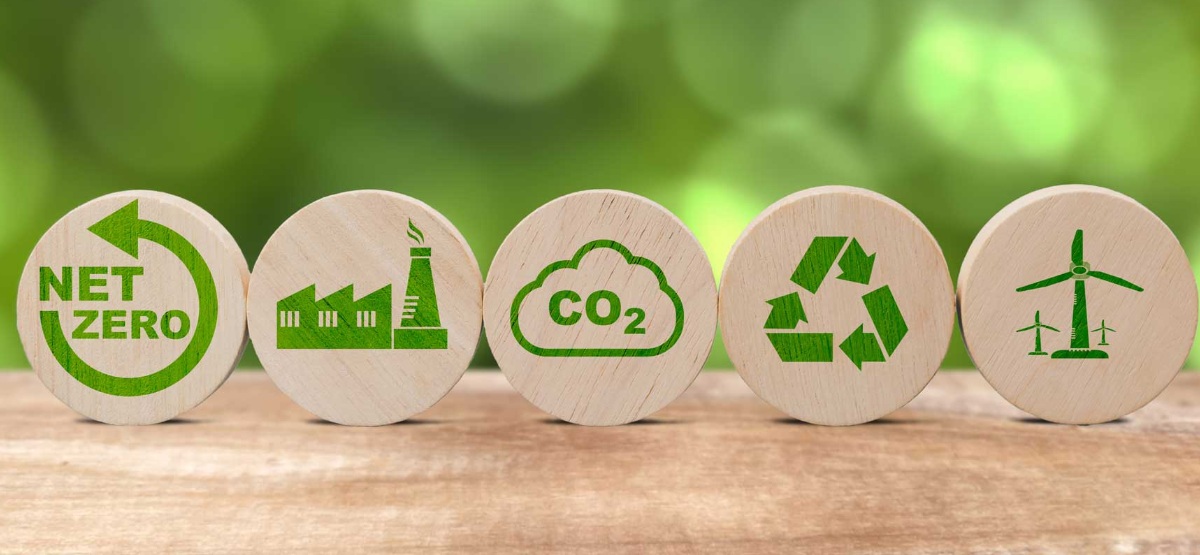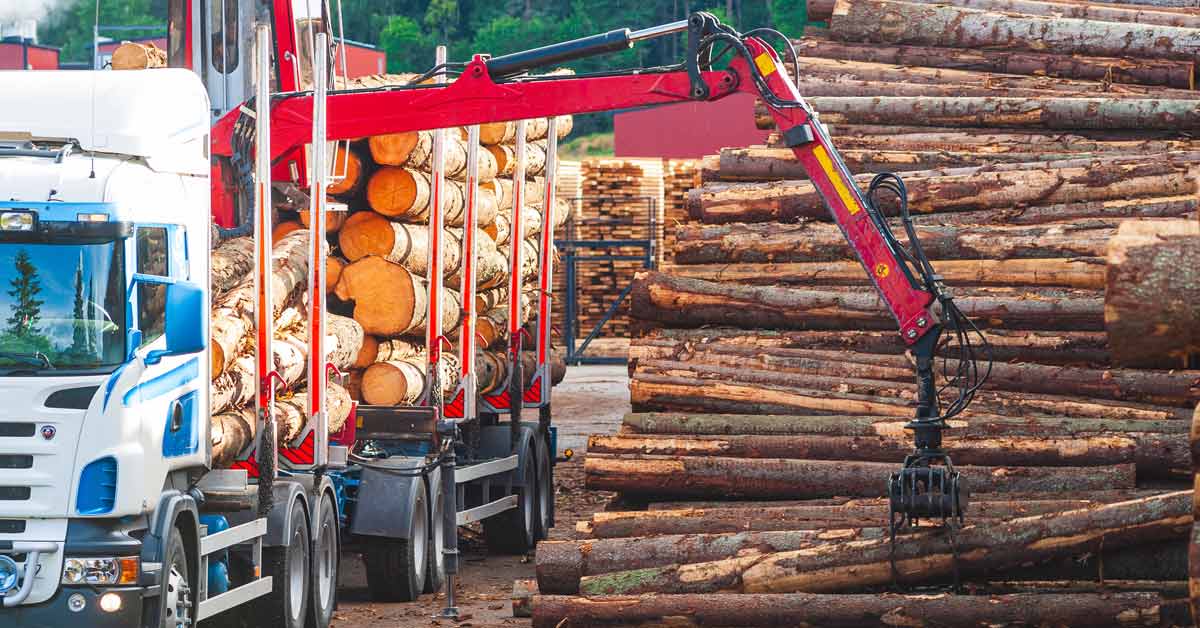5 min read
Let's Review: Pulp & Paper Opportunities in the Biofuels Sector and an Outlook on China's Market
ResourceWise
:
May 31, 2023 12:00:00 AM

The 18th annual International Pulp Week event hosted by Pulp and Paper Products Council (PPPC) will take place from June 4-6, 2023, in Vancouver, Canada. This three-day event aims to provide participants with valuable insights into the Chinese market’s prospects as the country emerges from lockdown, an overview of the key end-use markets for pulp globally, and the potential opportunities for pulp and paper players through sustainability innovations and efforts to minimize carbon emissions.
These topics are significant for all players in the pulp and paper industry worldwide. As such, we have shed light on critical questions surrounding these topics this year. Here is a selection of our top posts covering these important topics.
How Will China’s New Tariff Impact the Global Paper Industry?
Starting from January 1, 2023, China implemented a provisional import tariff rate for 1,020 commodities, which are lower than the most favored nation (MFN) tariffs. 67 finished paper products and converting products are covered in this policy and will enjoy a lower import tariff of 0–5% compared to the standard MFN import duties of 5–6%.
Finished paper products, containerboard, cartonboard, printing and writing paper will all receive a 0% import tariff to strengthen resource supply capacity and improve the resilience of industrial and supply chains. However, this raises a lot of concern from players in this value chain, including:
- From a macro perspective, reducing tariffs can increase imports and foreign exchange expenditures as well as reduce foreign exchange reserves.
- Due to China’s zero-Covid policy, China’s domestic demand decreased and directly impacted the paper industry. We’ve seen the decreased demand for paper lead to lower operating rates and market prices.
- A decreased import tariff will encourage the import of oversea production into China at a lower price and most likely a higher quantity too. This will obviously place further pressure on the industry.
When looking toward the future, we expect domestic paper prices to continue a downward trend in the short term. In the long term, as net profit reaches a new record low, more manufacturers will exit this market and more consolidations will be expected to occur in the next five years. China’s new provisional import tariff will undoubtedly impact the global paper industry.
What Do You Need to Know About the Low Carbon Transition?
We follow all the latest trends, insights, and breaking news in low-carbon fuels and feedstocks across the energy value chain.
To help keep you informed, we’ve put together some of the latest trends and updates impacting these commodities. Here are some of the top stories with our commentary on the developments.
- JetBlue (Nasdaq: JBLU) and Shell Aviation announced a new collaboration bringing additional supply of sustainable aviation fuel (SAF) to Los Angeles International Airport (LAX), targeting commencement of delivery in the first half of 2023. Within the terms of the agreement, JetBlue is expected to take delivery of 10,000,000 gallons of blended SAF at LAX over the next two years and an option to purchase up to 5,000,000 gallons more in the third year, either at LAX or other airports in JetBlue’s network.
Our take: The wave is moving quickly in the SAF market. United recently announced an SAF program to invest big in the development and utilization of this fuel. Their goal is to hit carbon zero by 2050. JetBlue and Shell look to be following suit, and other airlines will probably do the same.
- The European Scientific Advisory Board on Climate Change has released a report on the responses of European Union nations over the past year to the energy crisis caused by Russia’s severance of energy exports in retaliation for Western sanctions over the war in Ukraine. The report recommends addressing rocketing energy prices through a combination of energy-saving measures and the accelerated deployment of renewables.
Our take: Russia’s war in Ukraine has already wreaked havoc on the global fuel market. Europe is responding to the crisis as an opportunity to fast-track low carbon fuels and other renewables. This pivot will only serve to amplify these impacts and likely jumpstart carbon reduction investments far beyond the EU.
- Honeywell recently announced that one of its carbon capture technologies will be deployed by ExxonMobil and integrated into Exxon’s low-carbon hydrogen production facility in Baytown, Texas. It is anticipated that Honeywell’s CO2 Fractionation and Hydrogen Purification System (the name of the company’s carbon capture technology) will enable ExxonMobil to capture about 7 million tons of carbon dioxide each year. This amount of emissions is equivalent to the yearly emissions produced by 1.5 million automobiles.
Our take: With a major fossil fuel firm like Exxon doubling down on carbon reduction, the writing’s on the wall for the future. The world is rapidly transitioning to reduce and eliminate carbon output. Announcements like this reveal how quickly we’re shifting gears in fuels and commodities. That’s why you need the right intelligence to develop and execute your own carbon reduction strategy.
Apple Plans to Move Production Out of China – What Does This Mean for Its Pulp and Paper Industry?
At the beginning of December 2022, Apple accelerated plans to shift some of its production outside of China. According to the Wall Street Journal, Apple told suppliers to plan more actively for assembling Apple products elsewhere in Asia, specifically India and Vietnam. They are also looking to reduce dependence on Taiwanese assemblers led by Foxconn Technology Group—one of the company’s top suppliers and operator of the world’s largest iPhone factory in China.
There are several factors that contributed to this decision, such as:
- Shifting Covid-19 policies
- Reduced risk to the supply chain that comes with moving production as Covid showed the risks of having too many factories in one location
- Increases in wages in China have made it challenging to recruit employees at Foxconn
- The protests that swelled over the country’s strict zero-Covid policies – one of the largest factors that affected Apple’s decision
This was a significant announcement considering the economic power and force of Apple, and its new strategy to adjust to ‘China +’—where surrounding countries will supplement China’s primary production—could create several impacts.
The transfer of Apple’s supply chain to foreign companies will ultimately come down to how the ratio of benefits measures out. Western manufacturers will only shift its supply chain when China’s production costs and efficiency are lower than those of neighboring countries.
This may come when China’s population ages and a serious shortage of labor force comes about. Or it may come after India has formed a mature and stable manufacturing environment similar to China. In any case, we don’t believe these things will happen any time in the near-term.
However, Apple has started to ask suppliers to build backup capacity overseas. And converting companies such as Yuto Packaging and Shenzhen MYS have started to build plans in Southeast Asia already.
Could Sustainable Aviation Fuels Upend the US Pulp and Paper Industry?
Sustainable aviation fuel (SAF) is part of the promised low-carbon fuels future. SAF has similar chemistry and properties to conventional jet fuel, but it is produced from sustainable sources like biomass or waste materials. Depending on the feedstock and technologies selected, it can reduce lifecycle greenhouse gas (GHG) emissions by up to 80% when compared to conventional jet fuel.
SAF’s lower carbon intensity makes it a relevant solution for reducing aviation GHG emissions. According to the International Energy Agency (IEA), aviation accounted for over 2% of the global CO2 emissions in 2021. Air travel is expected to double by 2050, and jet fuel consumption could account for 8-12% of transportation emissions.
With the expected increase in demand, producers of SAF need to find suitable and affordable feedstock in sufficient quantities. It is a consensus among producers that feedstock diversification is vital. Current technologies tend to focus on organic waste, vegetable oil, and novel crops. However, woody biomass, forestry residues, and other feedstocks are already being considered for scaling up production.
With the increase of SAF (and other biofuels) capacity in the future, availability and pricing of biomass used by the P&P industry could be impacted. At the same time, many facilities could have the opportunity to transition into biorefineries—manufacturing biofuels and other bioproducts in addition to traditional pulp and paper products.
Fisher International, a ResourceWise company, provides pulp and paper businesses with critical information for successful strategy development and implementation. Our powerful data-based platform FisherSolve contains details on every pulp and paper mill worldwide, delivering data-driven intelligence to drive business performance and results.
The companies in the ResourceWise portfolio focus on a robust range of natural-resource-based commodity industries. These include forest products, pulp and paper, chemicals, and low carbon feedstocks and fuels.
For more than a decade, our legacy brands have focused on one mission: to help our customers make exponentially better decisions by providing them with the most accurate data and analytics available in the market.
ResourceWise’s VP of Global Sales, Matt Elhardt, and VP of Sales, Forest Value Chain, Trip Jobe, will be in attendance at International Pulp Week and available to set up meetings to discuss the direction we anticipate China’s pulp and paper market to head toward in addition to the opportunities that have been made available to pulp producers in the biofuels market. You can also discover how our business intelligence can help your company and provide you with the leverage needed to get ahead of your competitors.




